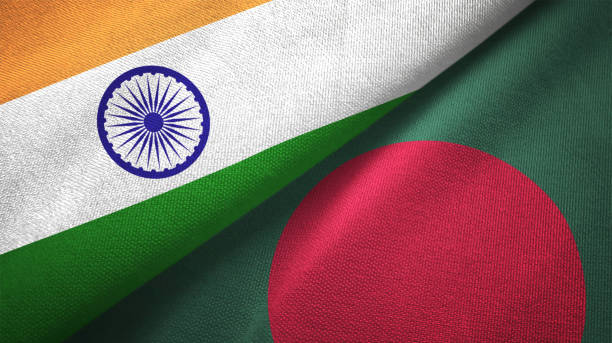POBNEWS24, Dhaka Dec 21, 2024 : Bangladesh was born as an independent sovereign state on December 16, 1971. But ten days before that, India recognized Bangladesh as an independent state on December 6. The following year, a long-term friendship and security agreement was signed between India and Bangladesh. However, despite the friendship agreement, India has wanted to expand its dominance in Bangladesh from the beginning. In particular, India had immense faith in the power of the Awami League. The Modi government has obtained all kinds of benefits by keeping Hasina in power. Delhi has benefited from most of the agreements signed with India during the 15 years of dictatorship. The Indian government has also unilaterally supported the Awami League government without evaluating the hopes and aspirations of the people of Bangladesh.
The belief that India, not Bangladesh, has always looked after its own interests has firmly taken root in the minds of the people of Bangladesh. Sheikh Hasina’s statement, ‘They will remember what we gave to India for the rest of their lives’, proves this. But India could not digest the fall of the Hasina government in the July-August movement. Since then, the simmering tension between India and Bangladesh has recently flared up.
India’s role in keeping the Awami League in power
Whenever there is an election in Bangladesh, India’s overt or covert ‘role’ is the most discussed. Especially in the 2008, 2014 and 2019 elections, there is extensive discussion about India’s role.
After getting a two-thirds majority in the 2001 elections, the BNP government brought a major amendment to the constitution by increasing the retirement age of Supreme Court judges. The Awami League launched a strong movement against this. In a conflicting political situation, the army intervened in politics on January 11, 2007. A state of emergency was declared. After that, a new caretaker government was formed under the leadership of Dr. Fakhruddin Ahmed, but in practice it was run by the army. It was alleged that the army-backed caretaker government tried its best to keep Sheikh Hasina and Khaleda Zia out of politics. After India’s intervention, it did not succeed, and after many discussions, dialogues and controversies, the election roadmap was finally announced. The Awami League won the elections. But the BNP could not accept the election results in any way. The party alleged rigging in the election.
Former Indian President Pranab Mukherjee claimed in his autobiography that he himself played a major role in releasing Khaleda and Sheikh Hasina from jail and bringing them back to politics. However, India did not want BNP to come to power in the 2008 election. That is why India issued a statement welcoming Sheikh Hasina the day after the Awami League government won.
The December 29, 2008 election is a very important issue for Bangladesh. This election marked a turning point in the democratic process of Bangladesh. According to observers, the 2008 election was the last free and fair election in the history of general elections in Bangladesh.
The Jatiya Party, along with BNP, decided not to participate in the 2014 election due to the caretaker government’s refusal to allow it. However, India’s so-called ‘interference’ in this election generated the most discussion and criticism. Just a month before the election, India’s then Foreign Secretary Sujata Singh came to Bangladesh for only 24 hours.
Various media outlets in India and Bangladesh said that Sujata Singh had visited Dhaka to meet Ershad to pressure the Jatiya Party to bring about the elections and to give the elections an ‘acceptable’ look. That is what happened, and in the end, the Jatiya Party withdrew from its position and participated in the elections and played the role of the opposition party.
India had already maintained a distance in the 2018 elections. Because India did not need to worry so much about BNP’s decision to participate in the elections, as the then Indian Ministry of External Affairs spokesperson Raveesh Kumar admitted.
Despite trying to maintain a distance from Bangladesh’s electoral process, India’s implicit support for Sheikh Hasina in the elections was not a secret in the political arena.
BNP alleged that the vote was held the night before the elections. Some videos of that rigging were also released. Later, BNP boycotted the elections and withdrew from the contest. However, there was not a single criticism from India about the electoral irregularities. This proved once again that India’s support for Sheikh Hasina, i.e. the Awami League, was non-partisan.
Not only that, India is supporting the Awami League in this election as well, fearing that Bangladesh could become politically unstable if Sheikh Hasina’s government falls in the 2024 elections.
Various parties and political analysts, including the BNP, say that Sheikh Hasina’s government remained in power for 15 consecutive years despite holding questionable elections with India’s active support and cooperation. During this time, India has openly supported all the injustices of the Hasina government, including corruption and murder. India believes that if the BNP-Jamaat comes to power, the path for Islamists to return to power in Bangladesh will be smooth. Therefore, they did not want anyone other than the Awami League to come to power in Bangladesh. However, the practice of Islam was supposed to be normal in a Muslim country.
During Hasina’s tenure, all the agreements with India that are against Bangladesh’s interests
Dirty At least 20 agreements and 66 memorandums of understanding were signed with India during Sheikh Hasina’s tenure. Most of these agreements and memorandums of understanding did not take into account the interests of Bangladesh. They unilaterally gave advantages to India.







